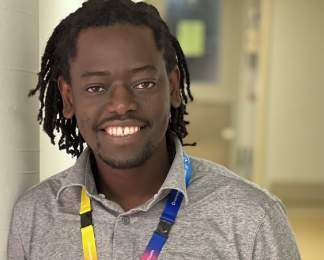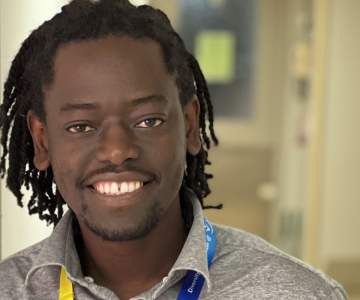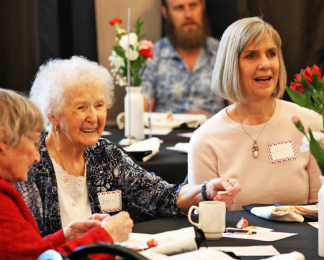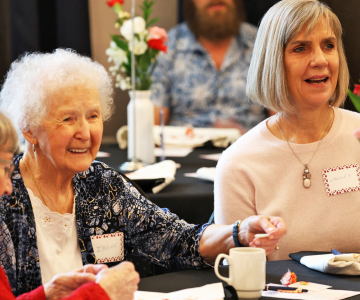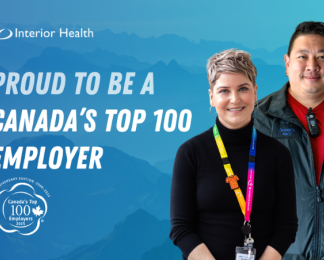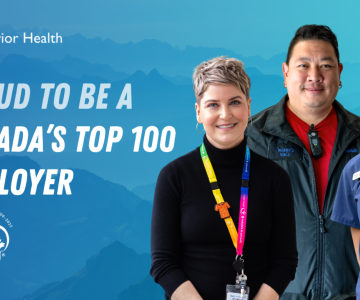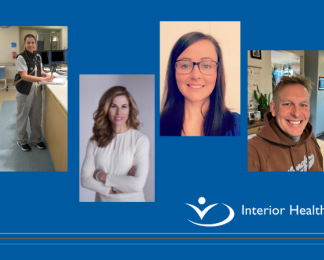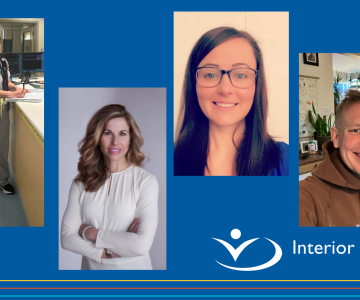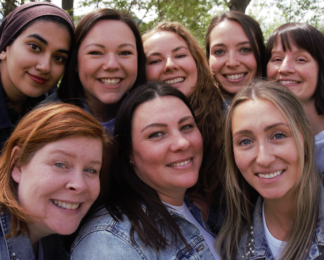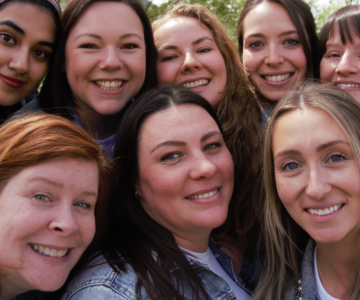Aniko Farkas became a social worker out of her deep-rooted desire to help others. As a sociable, charismatic 35-year-old, she loves her work in both hospital and community settings, and embraces the challenges and rewards of supporting those with physical and psychological injuries. She never imagined she might one day need to call on the kinds of support she was accustomed to providing to others.
In August 2020, Aniko witnessed a client's death in the course of her job. The loss of this particular client unleashed the pain from a decade of traumatic events, leading to such psychological damage that she would need more than a year off of work to heal.
At the time, Aniko continued to work and told herself she was okay, until January 2021 when it started to become clear that she was not.
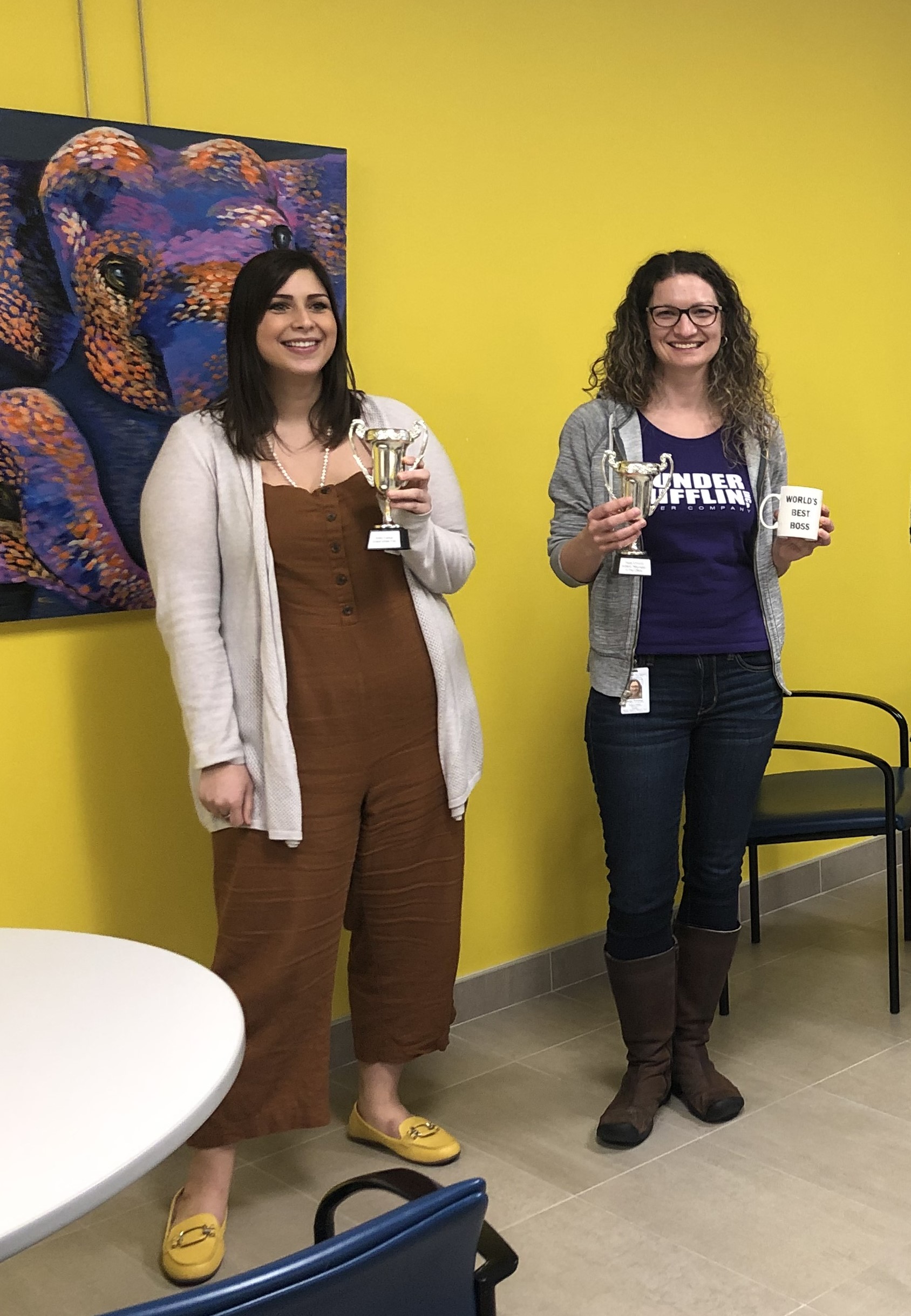
Seija Emond, who was a team lead at Cedar Sage Health and Wellness (now known as Access) was training Aniko. Seija recognized Aniko was experiencing burnout and pushing herself past healthy limits.
Aniko was working many hours in multiple positions, averaging 65-70 hours per week, to avoid thinking about what she had witnessed. While Aniko was continuing to do her job well, Seija began to grow worried about her, and continued to check-in with her.
When Aniko notified her team that another client had become unresponsive over the phone, and was calling 9-1-1, Seija left a leadership meeting to support Aniko in working with emergency responders to save the client's life.
“I didn’t want you to experience this alone,” Seija said as she comforted Aniko.
It's because of Seija’s thoughtful, empathetic and supportive leadership that Aniko felt safe enough to share with Seija that she wasn’t okay when Seija gently enquired about how Aniko was handling burnout. Seija didn’t hesitate to support Aniko in taking the needed time off work.
“Originally when I went off work it was for three weeks,” she says. “I couldn’t have predicted then what the next year would look like.”
Once Aniko stopped pushing herself to work, and gave herself the space and time she needed to recover, the impact of what she had been through set in.
For the first two months, Aniko was exhausted, sleeping up to 20 hours a day. That soon developed into crippling anxiety, with daily panic attacks, nausea, and an overwhelming fear of leaving the house. Her cognition was also affected — she was unable to read or retain information.

Aniko was diagnosed with post-traumatic stress disorder (PTSD) with derealization — a state of mind where you feel disconnected from your surroundings and the people you care about.
“I experienced dissociation on and off for months,” she explains. “I’d drive to the store and sit in the car to try to be normal, try to be a part of the world. But I wasn’t in it, thinking how do I interact with this world I see?”
Slowly and steadily, Aniko began her journey to recovery. The turning point in Aniko’s treatment was being connected with an occupational therapist, who took an incremental approach, listening carefully to Aniko’s experiences and tailoring treatment to her abilities.
Each step helped Aniko repair the broken connection between her body and her brain. As her health improved, she began to work with a somatic therapist, who focused on the physical side of recovery.
Her support team then began to focus on a gradual return to work. Aniko’s occupational therapist began helping Aniko rebuild confidence in her clinical skills and providing her with the knowledge and tools to manage physiological warning signs. Jesse Giddens, a regional representative from Interior Health’s Enhanced Disability Management Program (EDMP), reached out to Aniko to begin discussing what a gradual return to work could look like.
“Jesse was amazing. It was a breath of fresh air when he called. Knowing he was supporting me in going back to work felt incredible. It was like the two pieces connected. WorkSafe and my support team at Interior Health supported me with my leave, then IH's EDMP liaised with my occupational therapist who handled everything with my gradual return to work.”
“This was huge because being off work was super scary, and to have someone to take care of what needed to be done, the logistics, planning, training etc.— it was a lot for me to return to work, and they took care of everything. All I had to do was show up. I cannot say enough about how supported I felt and how grateful I am to have had that kind of support in a very difficult time in my life.”
Aniko describes the first couple weeks of her gradual return to work as a “shock to the system,” but says things slowly began to fit into place through exposure and routine. She practised her grounding strategies, took breaks when she felt overwhelmed, and used what she’d learned in counselling and occupational therapy to work through her fear and anxiety.

After six weeks of supernumerary shifts, she returned to regular full-time duties in June 2022 — 17 months after she originally went off work.
Today, Aniko is a social worker for the Injectable Opioid Agonist Treatment (iOAT) program and the social worker for Kelowna Integrated Court (KIC). She's also in school full-time completing her Master of Social Work through Dalhousie University.
Aniko is proud of how far she’s come, and credits her recovery to an amazing team of health practitioners, IH's EDMP, and her steadfast, supportive friends. She also credits the four standout Interior Health staff who supported her gradual return to work and are her “go-to” supports: Carol Overn, Launa Wagner, Kyra Macpherson and Thomas Lait.


